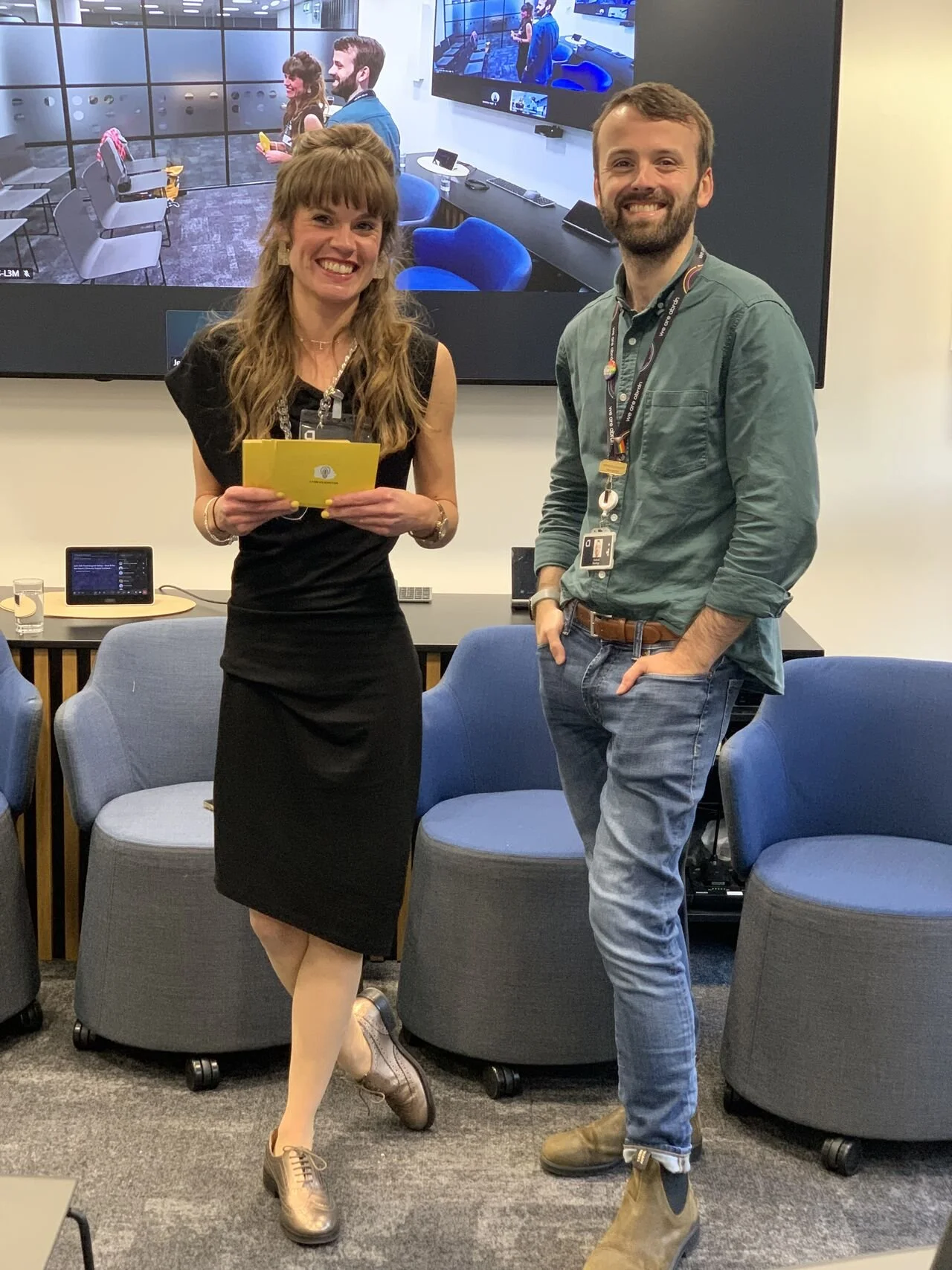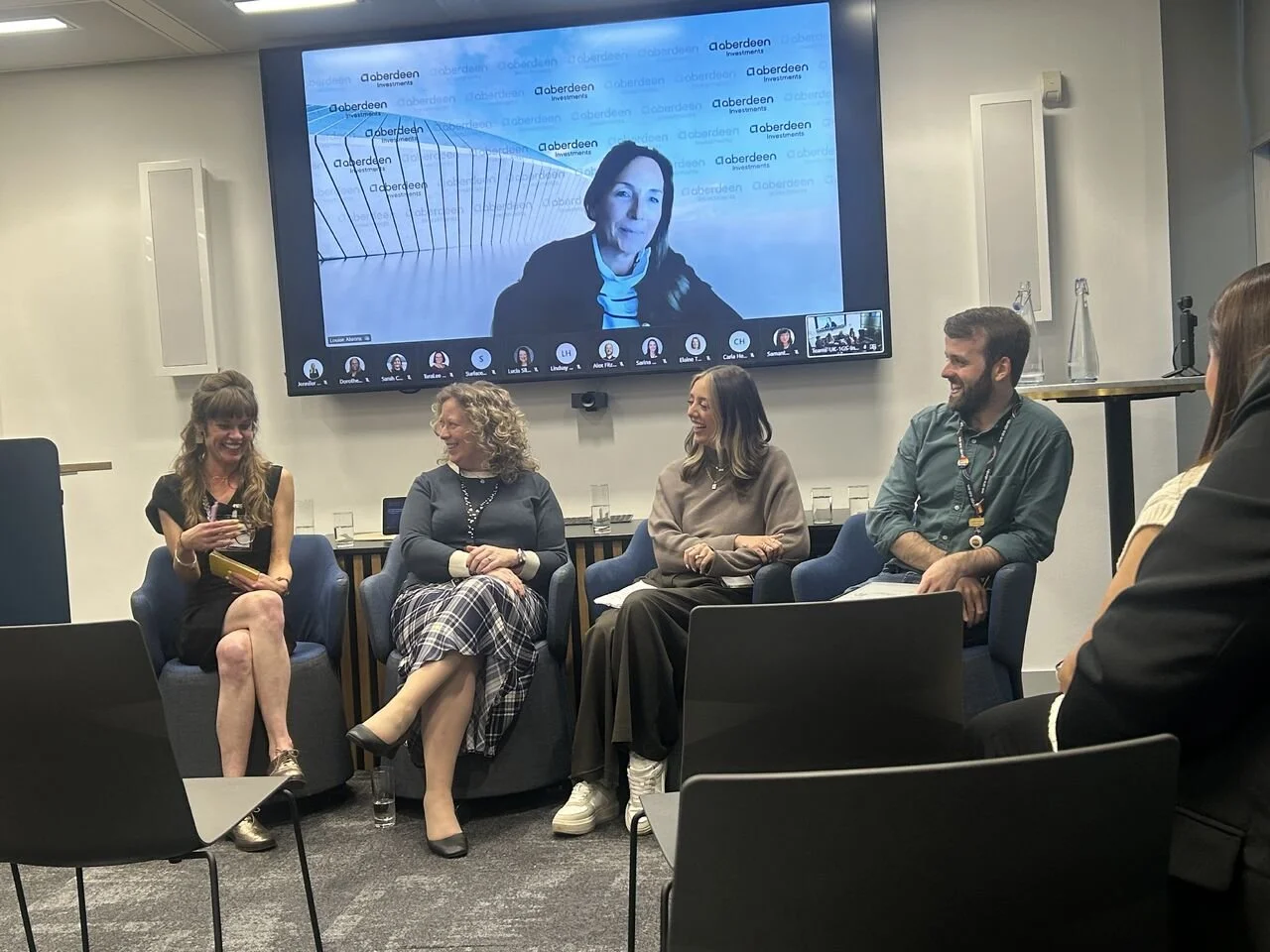Let’s Talk Psychological Safety - For Now And In The Future
Setting the Scene
Let’s talk psychological safety - now and for the future… And that we did! Through our stories, our panel, our online contributions, and our wine-chats!
I recently hosted an event with Aberdeen as part of Diversity Project - Investment Industry. I’ve been continually impressed by the Team’s commitment to building a brave and inclusive culture.
I opened the evening by unpacking what psychological safety really means: the permission to take risks, share ideas, ask questions, and admit mistakes, without fear of embarrassment or retribution. I shared insights from her own work on recovering from perfectionism, the lessons of improv comedy, and how failing fast can be a superpower in business growth. Drawing on research by Amy Edmondson, I explored how growth mindsets are key to innovation and creativity, imperative for financial services to stay ahead of the competition. That means creating cultures that celebrate progress, not just perfection.
Stories that Opened Doors
We then heard from two staff members who shared their own stories of vulnerability, learning lessons and asking for help. The courage they demonstrated by opening up really set the tone for the evening and gave us all permission to dig deep and get honest. Nicola Pugh gave us some great mindset advice - ‘I cannot control how others respond’ - encouraging us to create environments where everyone can belong, rather than told simply to fit in. This led nicely into Andrew Hastings’ input which stressed the importance of person-centred leadership and how the support from one leader can shift someone’s entire journey. Both stories let the audience experience first-hand the power of connection through vulnerability.
Panel Discussions Exploring the Key Themes
As a panel we spoke about the appetite in society for the concept of psychological safety - Morgan Moore reflected that often organisations know that they want ‘something’ to change and often they are striving for a move to a safer and more trusting culture. Andrew also gave us insights into various initiatives at Aberdeen and examples of how we can open the door to inclusion in many different ways. We considered what language and drivers we can use to involve more people in the conversation - whether that’s about building optimal team performance, data or stories. Additionally, we drew on digital expertise from Louise Ahrens who shared her knowledge from building tech teams and how quickly surfacing blockers is best for business.
Panellists discussing the topics and laughing.
The top themes that emerged were:
• How can we involve more people in the conversation - whether that’s about building optimal team performance, data or stories.
• How can we support people to overcome challenges in order for them to grow and be better equipped for the future, paying attention to individual needs.
• The importance of being open-minded and curious, letting ourselves be educated by others and their unique experiences.
• There is a difference between saying that ‘the door is open’ and actually supporting people to come through the door.
• Psychological safe environments let people be brave and do hard things, which is essential for growth and business success.
From Talk to Action
I also shared some practical steps regarding the ‘how’ of creating psychological safety:
• Role modelling accountability to build trust and saying when we don’t know.
• Framing our intentions with others, for example, ‘I’m anxious saying this’.
• Inviting people to do self-reflection about growth areas and self-identify areas for learning.
• Learning from entrepreneurs and sharing their ‘failures’ and the successes that come from this.
• Sharing books, podcasts and other thought leadership on the topic (including, ‘What does improv have to do with psychological safety’).
Audience members, during the session and afterwards, shared their own experiences of vulnerability and safety. We asked everyone to reflect on one question: ‘What’s one brave step you can take after today?’.
So, how will you be brave over the next few weeks? Let me know!

